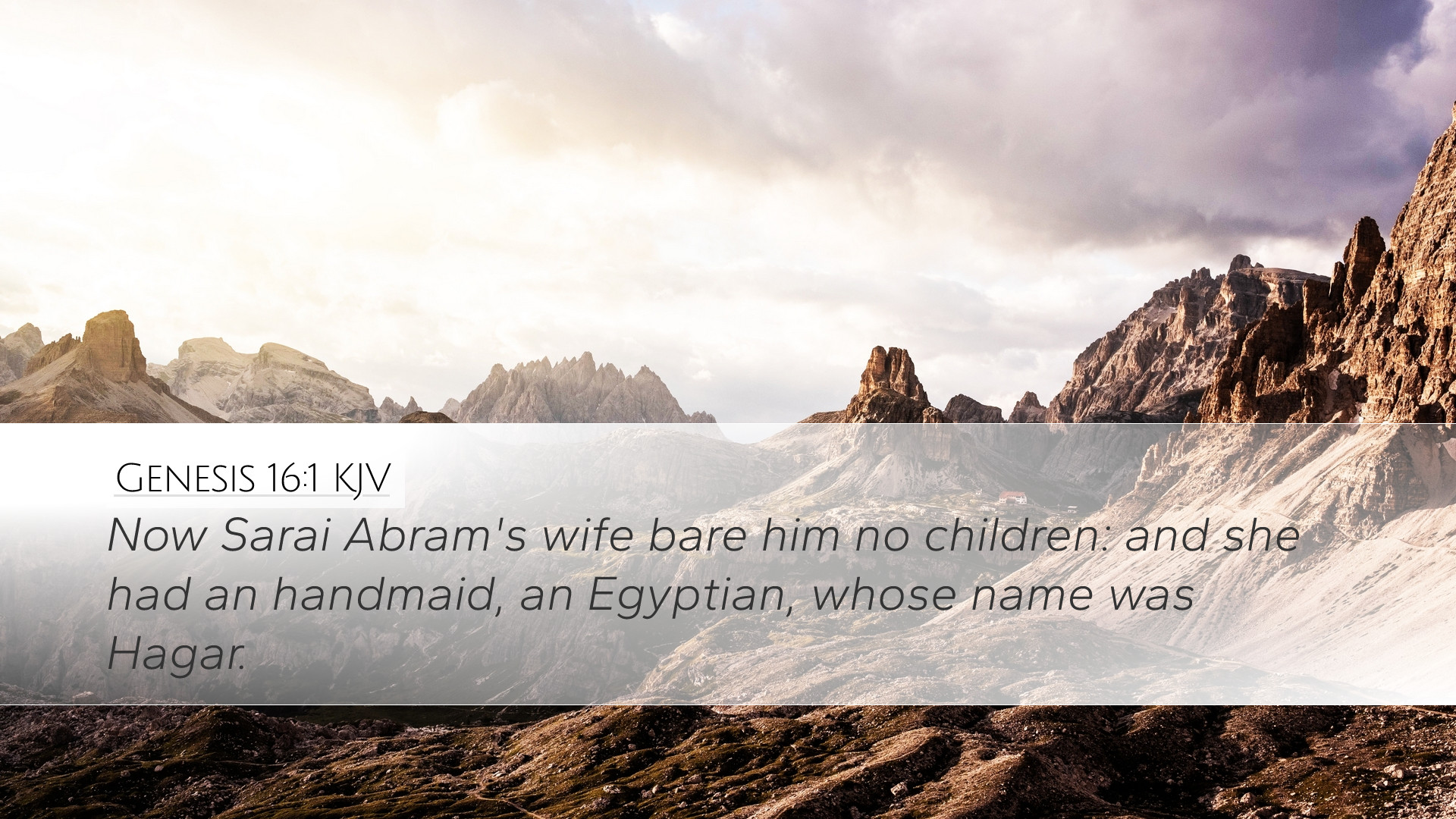Commentary on Genesis 16:1
Verse Text: "Now Sarai, Abram's wife, bore him no children: and she had an handmaid, an Egyptian, whose name was Hagar."
Introduction
Genesis 16 marks a pivotal moment in the narrative of Abraham and Sarai, illuminating the complexities of human relationships, divine promises, and the consequences of faith and doubt. This commentary synthesizes insights from various public domain sources, aiming to provide pastors, students, theologians, and scholars with meaningful reflections on this significant verse.
Contextual Background
Historical Context: Genesis 16 occurs within the larger context of God's covenant with Abram. At this point, Abram and Sarai have been promised descendants, yet their predicament, as described here, reveals their struggles with time and trust in God's promise.
Cultural Insights: Sarai's decision to offer Hagar to Abram can be better understood through the lens of ancient Near Eastern customs, where secondary marriages or concubinage were socially accepted means of ensuring offspring.
Analysis of Key Elements
- Sarai's Barrenness: As noted by Matthew Henry, Sarai's inability to conceive is a critical theme. It emphasizes human limitations in the face of divine promises, highlighting the tension between faith and the apparent absence of fulfillment.
- Hagar the Egyptian: Albert Barnes points out that Hagar's origins signify both a socio-political context and a foreshadowing of future conflicts. Hagar represents the challenge of relying on human solutions in the absence of God's evident action.
- The Role of the Handmaid: According to Adam Clarke, Hagar is more than just a servant; she embodies the desperation of Sarai’s condition. Her role complicates the interpersonal dynamics and introduces moral ambiguities that will unfold later in the narrative.
Theological Reflections
Divine Promises vs. Human Actions: This verse encapsulates a significant theological truth: human attempts to expedite divine promises can lead to unintended consequences. Matthew Henry emphasizes that waiting on God is often fraught with difficulties and temptations.
The Dangers of Impatience: The decision made by Sarai illustrates the perils of impatience in the life of faith. Albert Barnes cautions against the tendency to forge ahead of God’s timing, leading to strife and division.
Practical Applications
- Faith and Trust: This narrative urges believers to reflect on their own faith journeys. Are they waiting patiently for God's intervention, or are they seeking to fulfill His promises through their own means?
- Moral Complexities: The interactions between Sarai, Abram, and Hagar raise important questions about morality and ethics in decision-making. Church leaders must guide their congregations in navigating similar complexities in contemporary contexts.
- Understanding Divine Timing: Emphasizing the importance of timing and waiting on the Lord can foster a deeper trust and reliance on God's plans among believers today.
Conclusion
Genesis 16:1 serves as a reminder of the human condition—the struggle between faith and fear, the pursuit of solutions outside of God’s guidance, and the implications of those choices. By reflecting on the insights gleaned from Matthew Henry, Albert Barnes, and Adam Clarke, pastors and scholars are better equipped to guide their communities in understanding the intricate balance between divine promise and human action.


